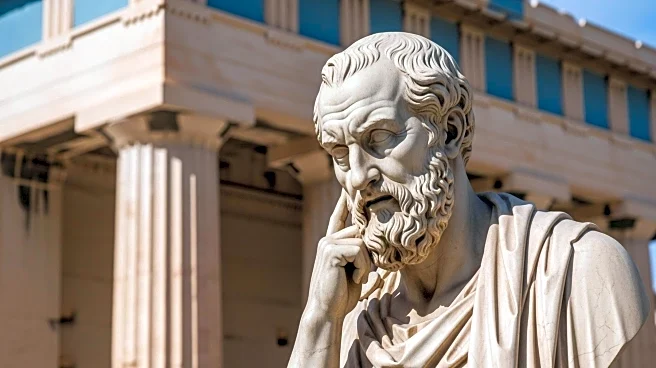Aristotle played multiple roles in Ancient Greece, including philosopher, educator, and founder of the Lyceum. His influence extended across various fields, shaping the intellectual and political landscape of his time.
Official Roles
Aristotle's official roles included his position as a tutor to Alexander the Great and his establishment of the Lyceum in Athens. These roles allowed him to impart his knowledge and influence future leaders, contributing to the development of Western thought.
Responsibilities and Powers
As a tutor to Alexander the Great, Aristotle was responsible for educating the future king in philosophy, science, and ethics. His establishment of the Lyceum provided him with the power to shape the intellectual discourse of his time, influencing scholars and thinkers across various fields.
Interactions and Coordination
Aristotle's interactions with his students and followers were central to his influence, allowing him to disseminate his ideas and expand his intellectual reach. His coordination with political leaders, such as Philip II of Macedon, provided him with a platform to influence the political landscape through education.
Limits and Constraints
Despite his significant influence, Aristotle faced limits and constraints in his roles, including the political dynamics of his time and the challenges of disseminating his ideas. These constraints shaped his approach to philosophy and education, highlighting the complexities of his roles in Ancient Greece.

 Discover Daily
Discover Daily 







